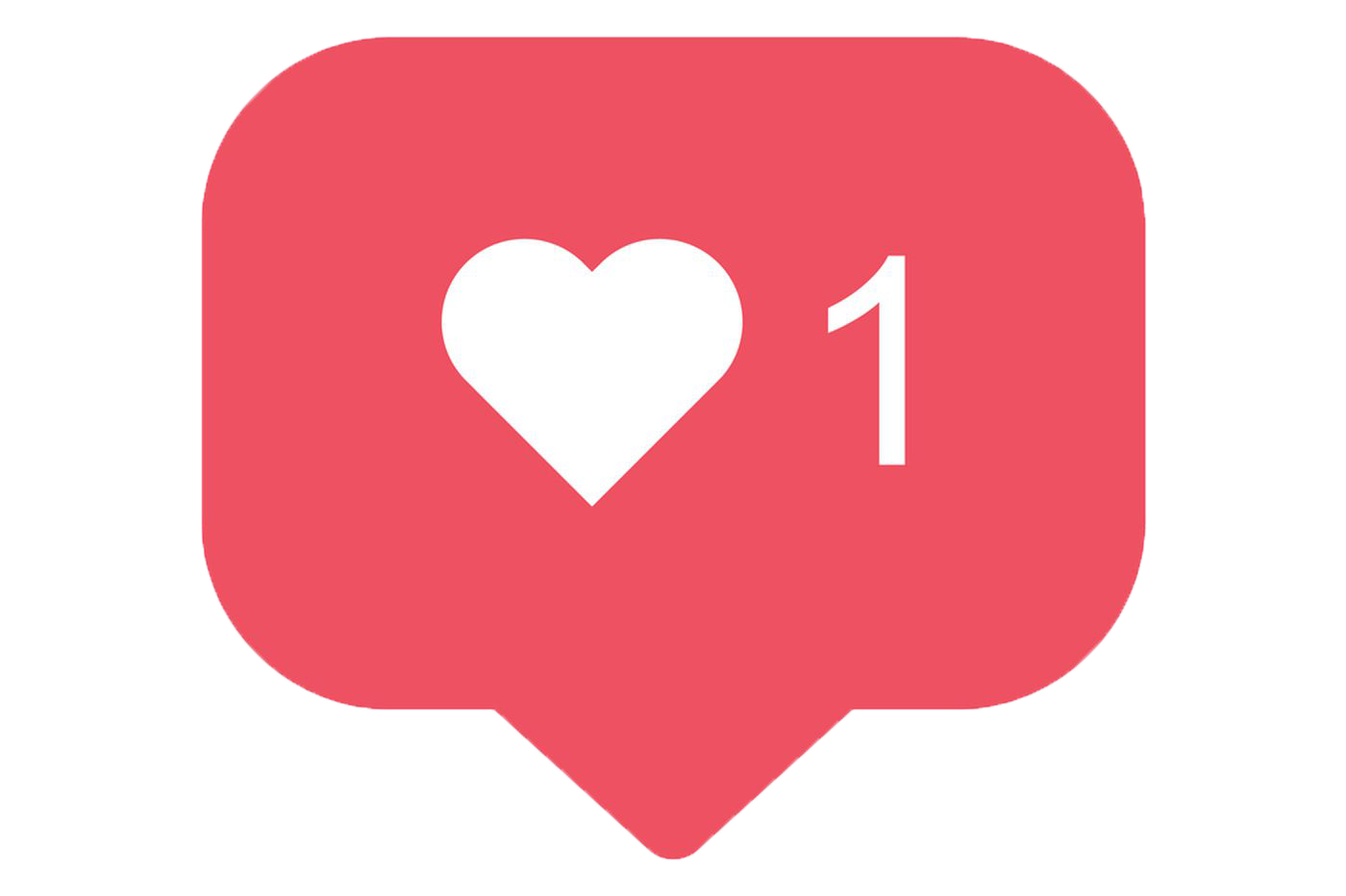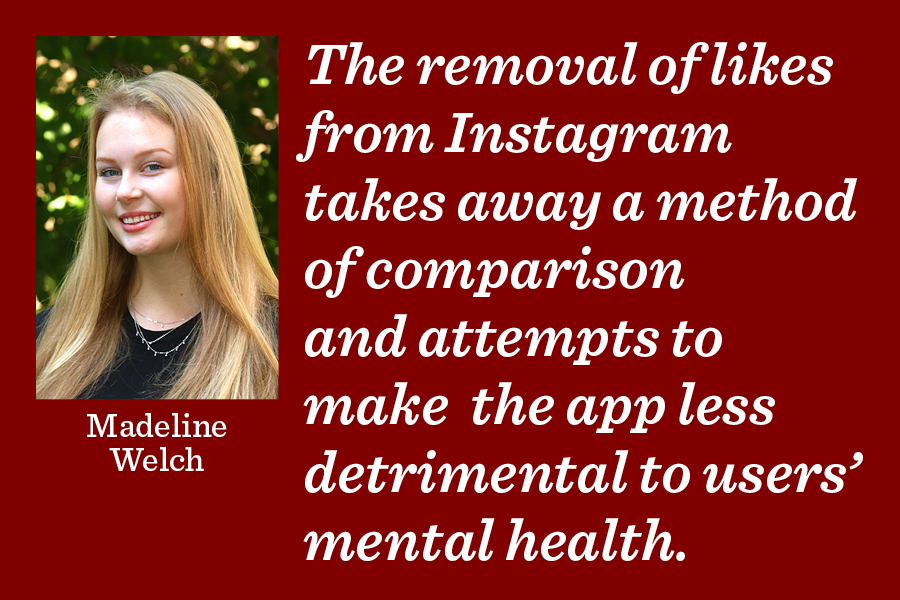Instagram hiding ‘likes’ limits online comparison
January 16, 2020
“Do you think this picture will get enough likes?” I ask my friend as I show her my picture while she mindlessly scrolls through her Instagram feed.
After scouring over my photo for imperfections and consulting my friends for help with a caption, I finally hit “post.” In the moments following, I impatiently check my lock screen, waiting for notifications of comments and likes. I track the number of likes incessantly. If my selfie receives enough likes from friends and strangers, then I will feel beautiful. If it doesn’t, I will delete the post out of embarrassment and self-hatred.
My story is relatable for millions of young people on Instagram. Users seek validation with each like they receive. Many people equate the volume of likes to be how well they are liked as a person.
In November, Instagram began to hide likes from users in the United States, as the company previously did in Canada, Ireland, Italy, Japan, Brazil, Australia and New Zealand. Users can still see the amount of likes on their own posts, but not on others’.

The removal of likes from Instagram takes away a method of comparison and attempts to make the app less detrimental to users’ mental health. By easing the pressure for users to post solely for a like-count, Instagram will be used more for personally meaningful images.
“The idea is to depressurize Instagram, make it less of a competition,” Adam Mosseri, the CEO of Instagram, said at the Wired 25 conference in San Francisco on Nov. 8, 2019.
According to a survey by the Royal Society for Public Health, Instagram is the worst social media site for youth mental health.
The research project, called “#StatusOfMind,” surveyed almost 1,500 people aged 14-24 about the mental effects of social media platforms. Participants noted that some of the issues caused by Instagram were anxiety, depression, poor body image and bullying.
I have also experienced some of these symptoms. I’ve spent countless nights shame-spiralling through influencers’ and models’ pages, training my brain to think that their Photoshopped images with millions of likes are the measure of beauty.
While getting rid of Instagram like counts won’t solve all of these problems, it is a positive step. Stopping users from numerically comparing themselves to others will limit the compulsive checking of Instagram exemplified in my story above.
A study done by Michigan State University study says this compulsive behavior is a large part of social media addiction.
Removing likes will affect the way social media influencers track their engagement, but this is a worthwhile tradeoff. Influencers can use other quantifiable data, such as comments, to evaluate their followers’ interaction.
Since the new rule, I’ve felt more comfortable posting things that I previously wouldn’t have considered sharing simply because I’m not scared of reaching a certain number of likes.




























































